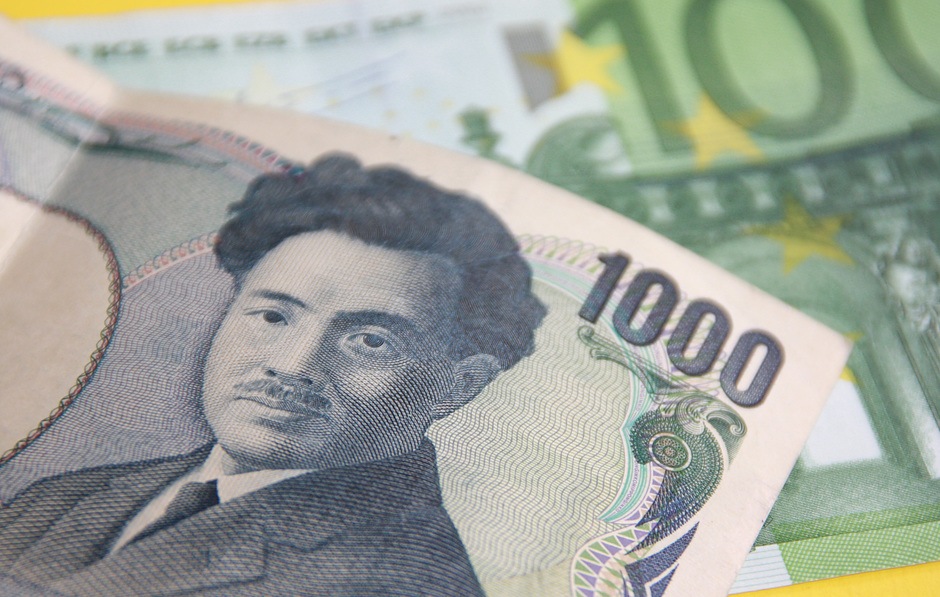EUR/JPY advances to near 161.50 due to improved market sentiment
- EUR/JPY strengthens as US President-elect Donald Trump's economic team considering a gradual increase in import tariffs boosted investor confidence.
- The Japanese Yen faces challenges as traders anticipate the BoJ may postpone rate hikes until April.
- The Euro could struggle due to the increased likelihood of further monetary easing by the ECB.

EUR/JPY pair pauses its three-day winning streak, trading around 161.50 during the Asian session on Tuesday. The pair gains support as the Japanese Yen (JPY) faces pressure amid uncertainty over the timing of the Bank of Japan's (BoJ) next rate hike. Market participants speculate that the BoJ may delay raising rates until April, awaiting confirmation of sustained wage growth during the spring negotiations.
Bank of Japan Deputy Governor Ryozo Himino stated on Tuesday that while the central bank’s policy direction favors further rate hikes, it must carefully assess both upside and downside risks domestically and internationally. Himino emphasized the need to monitor short-term economic activity, prices, and financial conditions before taking further action.
Additionally, reports about US President-elect Donald Trump's economic team considering a gradual increase in import tariffs boosted investor confidence, weakening the safe-haven JPY. This, in turn, supported the risk-sensitive Euro, contributing to the EUR/JPY cross’s appreciation.
A Bloomberg report on Monday highlighted that Trump's incoming administration is evaluating a phased approach to implementing tariffs, aiming to prevent a sharp rise in inflation while managing trade policy adjustments.
Increasing expectations of further monetary easing by the European Central Bank (ECB) are putting downward pressure on the Euro. Speaking at the Asian Financial Forum (AFF) 2025 on Monday, ECB Chief Economist Philip Lane stated that additional interest rate cuts are likely as the central bank aims to prevent the economy from slowing down excessively.
ECB Governing Council member and Bank of France Governor François Villeroy de Galhau stated on Monday that although the French economy is "slowing down," he does not anticipate a recession. Villeroy added that French economic growth could rebound in 2026 and 2027, following a period of stagnation, with GDP growth estimated at 0% in the fourth quarter of 2024.
Euro FAQs
The Euro is the currency for the 19 European Union countries that belong to the Eurozone. It is the second most heavily traded currency in the world behind the US Dollar. In 2022, it accounted for 31% of all foreign exchange transactions, with an average daily turnover of over $2.2 trillion a day. EUR/USD is the most heavily traded currency pair in the world, accounting for an estimated 30% off all transactions, followed by EUR/JPY (4%), EUR/GBP (3%) and EUR/AUD (2%).
The European Central Bank (ECB) in Frankfurt, Germany, is the reserve bank for the Eurozone. The ECB sets interest rates and manages monetary policy. The ECB’s primary mandate is to maintain price stability, which means either controlling inflation or stimulating growth. Its primary tool is the raising or lowering of interest rates. Relatively high interest rates – or the expectation of higher rates – will usually benefit the Euro and vice versa. The ECB Governing Council makes monetary policy decisions at meetings held eight times a year. Decisions are made by heads of the Eurozone national banks and six permanent members, including the President of the ECB, Christine Lagarde.
Eurozone inflation data, measured by the Harmonized Index of Consumer Prices (HICP), is an important econometric for the Euro. If inflation rises more than expected, especially if above the ECB’s 2% target, it obliges the ECB to raise interest rates to bring it back under control. Relatively high interest rates compared to its counterparts will usually benefit the Euro, as it makes the region more attractive as a place for global investors to park their money.
Data releases gauge the health of the economy and can impact on the Euro. Indicators such as GDP, Manufacturing and Services PMIs, employment, and consumer sentiment surveys can all influence the direction of the single currency. A strong economy is good for the Euro. Not only does it attract more foreign investment but it may encourage the ECB to put up interest rates, which will directly strengthen the Euro. Otherwise, if economic data is weak, the Euro is likely to fall. Economic data for the four largest economies in the euro area (Germany, France, Italy and Spain) are especially significant, as they account for 75% of the Eurozone’s economy.
Another significant data release for the Euro is the Trade Balance. This indicator measures the difference between what a country earns from its exports and what it spends on imports over a given period. If a country produces highly sought after exports then its currency will gain in value purely from the extra demand created from foreign buyers seeking to purchase these goods. Therefore, a positive net Trade Balance strengthens a currency and vice versa for a negative balance.
Author

Akhtar Faruqui
FXStreet
Akhtar Faruqui is a Forex Analyst based in New Delhi, India. With a keen eye for market trends and a passion for dissecting complex financial dynamics, he is dedicated to delivering accurate and insightful Forex news and analysis.

















